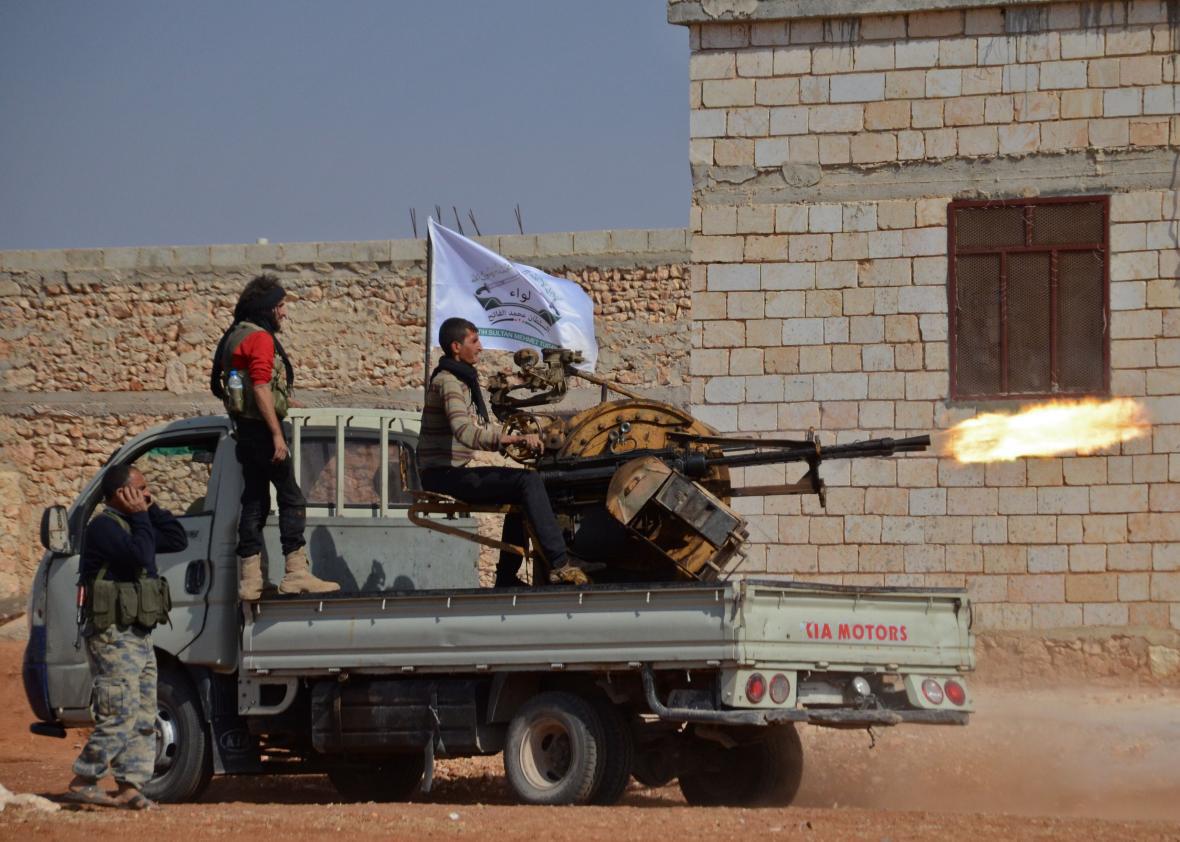U.S. Secretary of Defense Ash Carter told NBC News on Wednesday that a U.S.-backed offensive by Arab and Kurdish fighters to recapture ISIS’s capital in the Syrian city of Raqqa will likely begin in a few weeks. This means that hard-fought battles in Raqqa and ISIS’s last Iraqi stronghold, Mosul, will likely be happening at the same time, both with U.S. support.
There’s good reason to get a Raqqa operation underway sooner rather than later. There are signs that ISIS fighters in Mosul may be planning to evacuate some fighters from Mosul to regroup for the next battle in Raqqa: Residents report that many of them have been shaving their beards to evade detection and moving to hideouts closer to evacuation routes to Syria. Fighting in both cities at the same time would be a challenge for the group, which has lost significant strength in recent months. Losing both Mosul and Raqqa wouldn’t eliminate ISIS as a terrorist threat but would effectively end its reign as a territorial “state.”
The anti-ISIS forces have been making fast progress clearing villages close to Mosul, but fighting within the center of the city, where ISIS forces have been preparing for weeks, is expected to be tougher. The battles in both cities will likely be long and arduous fights causing large number of casualties and the displacement of civilians. But the military obstacles are probably easier to overcome than the political challenge of continuing to hold together coalitions of local forces to do the fighting. That’s even more the case in Northern Syria, where the central government has little authority and wouldn’t be that helpful even if it did. The Russian-backed Syrian regime may work to undermine the coalition if they view it as more of a threat than ISIS. In what may be a grim preview of what’s in store, Syrian regime helicopters dropped barrel bombs on Turkish-backed rebels fighting ISIS in Northern Syria on Wednesday.
On both sides of the Syria-Iraq border, Turkey has emerged as a complicating factor in the two-front battle against ISIS. A Turkish-backed rebel force entered Syria in August, both to fight ISIS and to contain advances by the very Syrian Kurdish forces that the U.S. hopes will play a major role in the Raqqa battle. In Iraq, Turkey actually has surprisingly good relations with the Kurdish regional authorities, but it has enraged the central government by dispatching troops into Iraqi territory and insisting that it will play a part in the battle for Mosul without Baghdad’s permission, and refusing requests to remove them. Growing fears that Turkey and Iraq could be headed for war are probably overblown, but Ankara is definitely creating more knots for the next U.S. president to untangle after ISIS’s bloody last stand is finally over.
